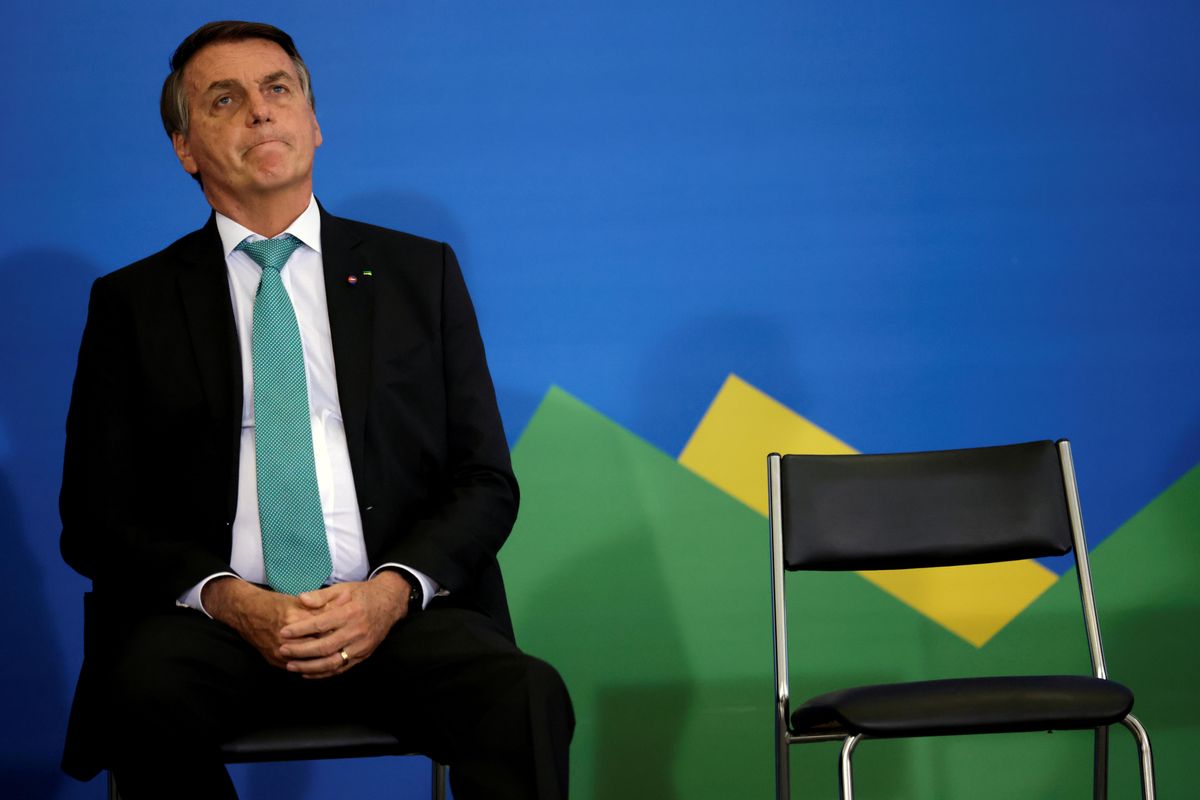Is Bolsonaro on the ropes for good this time? Tens of thousands of Brazilians hit streets across the country in recent days calling for the impeachment of President Jair Bolsonaro. For months, pockets of anti-Bolsonaro sentiment have been bubbling nationwide, but now a record 58 percent of people polled say his performance is "bad" or "very bad." Soaring prices for electricity, food, and medicine have added to lingering discontent with right-winger Bolsonaro's disastrous handling of the pandemic. And a scandal over potential corruption in vaccine procurements hasn't helped either. Bolsonaro can still count on the unwavering support of about a quarter to a third of the population, and he has strong loyalty among cops and soldiers. But as discontent spreads, it's looking less and less likely that he'll be able to defeat his presumptive rival in next year's presidential election: the leftwing former president Luiz Inácio "Lula" da Silva. Current polls suggest Bolsonaro is in for a drubbing, but if so, will he accept defeat?
Panama Papers 2.0: You may recall the giant leak of financial documents in 2016 known as the Panama Papers, which exposed financial misdeeds and corruption among the global elite. The revelation prompted the resignations of several government figures and hundreds of criminal probes. Now, five years later, another trove of documents, the Pandora Papers, obtained by the International Consortium of Investigative Journalists and published by the Washington Post, reveals tax dodging and criminal activities linked to global heavyweights, including 14 current national leaders. Here are some of the revelations: the unassuming US state of South Dakota is now a haven for those trafficking in financial secrecy; Jordan's King Abdullah II secretly spent over $100 million on luxury homes in California; allies of Pakistan's PM Imran Khan have stashed millions of dollars offshore. All together, the Pandora Papers identify more than 29,000 illegal offshore accounts, more than double what was identified in the document dump five years ago. Given that the global economy is still in the throes of a pandemic-fueled crisis, we're watching to see what the fallout might be — if any — as angry voters demand answers.
Georgia on our mind: The flamboyantly fearless political showman Mikheil Saakashvili was arrested just hours after returning home to Georgia to support his own party in hotly contested local elections. Saakashvili — who led a pro-Western revolution in 2004 and was Georgia's president until 2013 — had been in exile for almost a decade, a period during which he lived a bachelor's life in Brooklyn and then served in the post-Maidan Ukrainian government. And yet he remains a major opposition figure in Georgia, where his political party continues to square off bitterly against the ruling, Russia-friendly Georgia Dream party. A crisis now looms because, per a compromise brokered earlier this year by the US and EU, this weekend's elections were meant as a nationwide litmus test for whether to call new snap national elections. The Georgian Dream party claims to have won by a big enough margin to avoid that, but international observers have called the result into question, fueling grievances of Saakashvili and his party. Saakashvili — who once responded to arch-enemy Vladimir Putin's threat to hang him "by the balls" by saying "he doesn't have enough rope" — is reportedly on hunger strike, and the politically volatile Caucasian country of 4 million is on edge, again.







